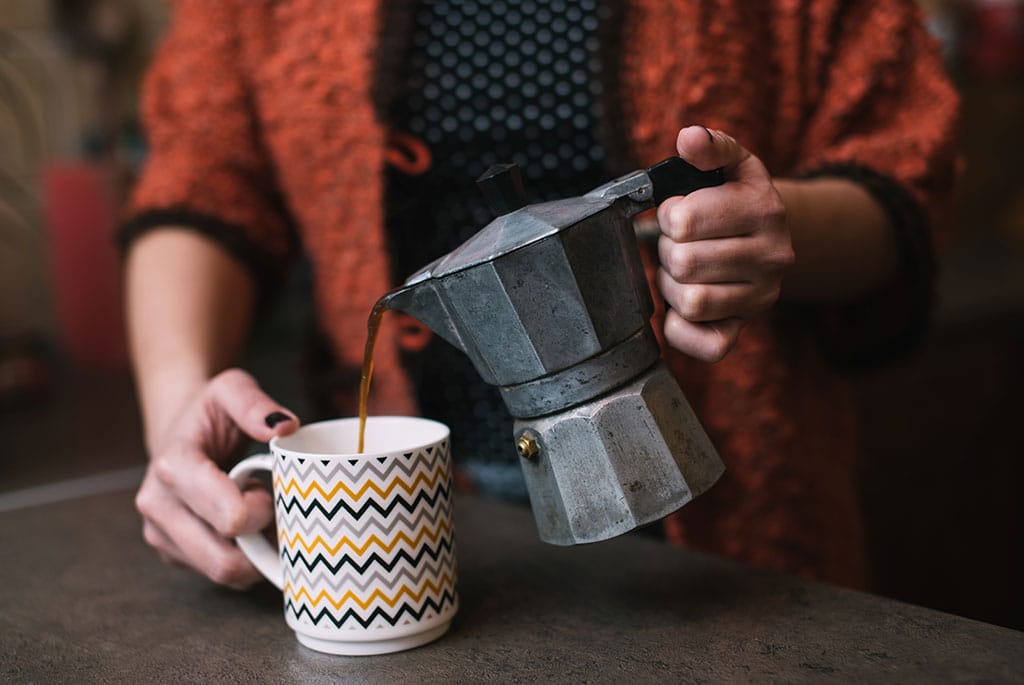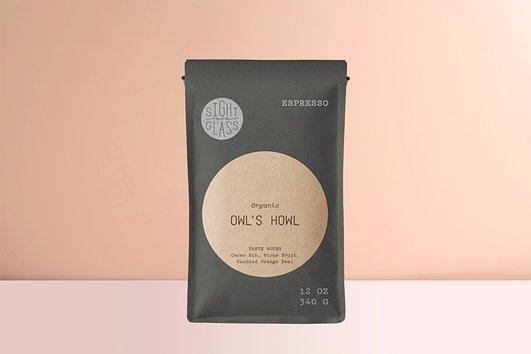How to Make Espresso at Home (With or Without a Machine)
Matthew Berk
• October 19, 2021 — last updated January 23, 2026
Table of Contents
- What Is Espresso?
- How Much Caffeine Is in Espresso?
- Best Coffee Beans for Espresso
- How to Make Espresso at Home
- How to Make Espresso Without a Machine
- Types of Espresso Drinks
- What Is Blonde Espresso?
- What Is Espresso Powder?
What Is Espresso?
How Much Caffeine Is in Espresso?
Best Coffee Beans for Espresso
There's actually no such thing as an espresso bean, and the best coffee for espresso is subjective. Technically, any coffee can be brewed as espresso. But there are coffee blends specifically formulated for espresso that taste best as espresso drinks.
That said, although some cafes have started offering single-origin espresso shots, by and large espresso is made with blends specifically designed for espresso. What matters most, from the point of view of the barista, is how the beans are ground. While drip coffee is best when the beans are a medium grind (about the size of sea salt), for espresso, the beans need to be finely ground and the consistency of the grind is essential.
How to Make Espresso at Home
Making a great shot of espresso requires an initial commitment, but once you put in the time and the practice, it's immensely rewarding to pour your first great-tasting shot. Follow our recipe to make espresso at home.
Quick Espresso Basics
- Grind size: Fine (but not powdery)
- Standard dose: 18–20g coffee for a double shot
- Yield: About 36–40g espresso (roughly a 1:2 brew ratio)
- Brew time: About 25–30 seconds
The Best Espresso Recipe
Prep Time: 3 minutes
Cook Time: 2 minutes
Total Time: 5 minutes
What You Need
- Espresso Machine: Because of the pressure required, you need a bone fide espresso machine that can get up to pressure and produce consistent hot water. (Looking for recommendations? These are our picks for the best espresso machines.) If you don’t have an espresso machine or the budget for one, jump down to How to Make Espresso Without a Machine.
- Burr Grinder: In the espresso world, our magic word is consistency. A great burr grinder is going to be the most consistent source of even, finely ground coffee.
Ingredients
- Filtered Water: You want to use filtered water, especially if you have hard water. Coffee is mostly water, so quality water is a must!
- 18 to 20g Coffee: Any coffee will work, but we recommended these coffee beans for espresso.
Directions
Step 1: Turn on your espresso machine and give it time to warm up.
Step 2: Once your machine is heated and you're ready to start brewing, place your portafilter on the scale and tare out the weight.
Step 3: Grind the coffee into your portafilter until you reach your desired weight, 18 to 20g for a double shot.
Step 4: Even out the bed of coffee in your portafiliter, either through a distribution tool or with your index finger. The goal is to make sure the coffee is level and evenly distributed across the whole basket.
Step 5: Use your tamper to compress your coffee down with a fair amount of pressure. It's very important that you tamp straight down in order to achieve an even puck. If you tamp at an angle, the extraction of your coffee will be compromised.
Step 6: Pull your shot!
Step 7: Taste your coffee and determine if you need to change any variables to improve the quality of your cup.
Tasting your coffee and deciding what to change is the hardest part of mastering espresso and takes time to learn. If your espresso is tasting under extracted (sour), try making your grind a bit finer. Bitterness is indicative of over extraction and requires a coarser grind.
How to Make Espresso Without a Machine

While you can't make a bona fide espresso without pressure from a machine, you can get close(ish) to the real deal with one of these methods:
How to Make Espresso With a Moka Pot
Even though it’s smaller and looks a lot different than an espresso machine, the Moka pot is the best way to brew an espresso-like coffee. It makes coffee using pressure, similar to an espresso machine. Many people actually prefer the Moka pot to an espresso machine since it’s a lot more affordable and portable. Intrigued? Check out our guide to using a Moka pot at home here.
How to Make Espresso With a French Press
Making espresso with a French press basically means making less coffee. Here's what you do: Boil one cup of water. While you wait for the water to heat up, add two tablespoons of freshly, finely ground coffee to your French press. Add a bit of the boiling water to the French press and stir briefly. Wait four minutes, then slowly push down the plunger, pausing every few seconds. Note that it'll be slightly challenging to push the plunger down due to the grind size.
How to Make Espresso With an AeroPress
Using your normal brew method for the AeroPress, prepare less coffee using a fine grind. If able, heat your water in a kettle to 205 to 210 degrees Fahrenheit (the optimal temperature for espresso in an AeroPress). Pro Tip: You can make this even easier with the Fellow Prismo Attachment for AeroPress ($25 on Amazon), an actuated valve that attaches to the device for espresso-like coffee.
Types of Espresso Drinks
If you’ve ever stared slack-jawed at the coffee shop menu wondering what the difference was between all the espresso drinks, you're in good company! Here's an overview of the different types of espresso drinks:
- Single Shot: It's simple and delicious.
- Double Shot: This is the most common shot, as most baristas pull double shots and dump out half if someone orders a single.
- Americano: An Americano is water poured over espresso. Think of it as a more intense cup of drip coffee.
- Macchiato: A macchiato is espresso with steamed milk foam. Surprised that it’s not a caramel-infused sugar bomb? It’s cool if you like that, too, but that's not a traditional macchiato.
- Cappuccino: Your average cappuccino is equal parts espresso, steamed milk, and foamed milk.
- Flat White: The is espresso with microfoam poured over it. Microfoam is steamed milk filled with small, fine bubbles that give it an ultra smooth consistency. Yes, it’s different from a latte.
- Mocha: Mochas are delicious and surprisingly, not overly sweet.
- Latte: A latte is espresso with lots of steamed milk and very little foam.
- Ristretto: This is a concentrated shot of espresso, for when you don’t want to blink for a few hours or commit to anything longer than a sip. After all, you’ve got places to be and things to do.
What Is Blonde Espresso?
Blonde espresso, popularized by Starbucks, is simply an espresso made with light roast coffee as opposed to a traditional espresso, which uses medium or dark beans.
What Is Espresso Powder?
Some baking recipes call for espresso powder, which is made from darkly roasted, finely-ground coffee beans. You can buy espresso powder at the supermarket or make it on your own at home. It's not meant to be used to make an actual espresso drink, however.
Can You Make Espresso Without a Machine?
True espresso requires pressure, so you won’t get the exact same result without an espresso machine. But you can make a strong, espresso-style coffee at home using tools like a Moka pot or AeroPress—especially if you use a fine grind and a more concentrated ratio.
We want to help you make better coffee at home. Our recommendations are our own, and never sponsored. If you see something you love and buy it through our links, we may receive an affiliate commission (thanks for that!).






